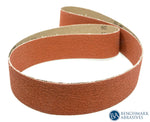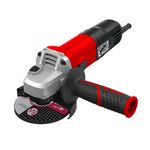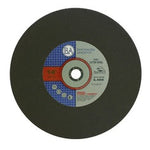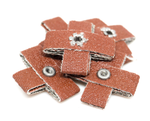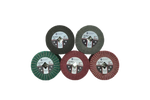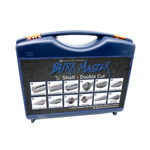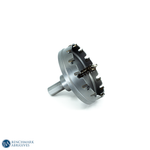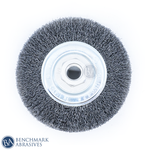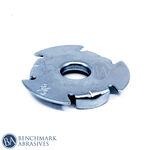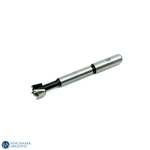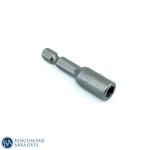
The Role Of Abrasives In Modern Construction: Beyond The Surface

In the realm of industrial manufacturing, accuracy and productivity are critical. Accurately shaping, finishing, and refining materials is essential to creating high-quality goods. A broad family of materials called abrasives is crucial in these procedures.
These materials are essential to the industrial, construction, automotive, and restoration industries because they are designed to shape, finish, and improve surfaces. Abrasive materials are the hidden heroes of manufacturing, helping to create complex parts and goods.
Abrasives, which include sandpaper and grinding wheels, are used to accurately shape materials such as composites, glass, metal, and ceramics. Manufacturers use abrasives to achieve precise and consistent results in their processes, whether they are used to smooth off uneven edges or meet tight tolerances.
UNDERSTANDING THE FUNDAMENTALS OF ABRASIVES
It's important to know what abrasives are before diving into their industrial uses. In the process of abrasion, hard materials called abrasives are used to remove or shape other materials. Alumina, silicon carbide, sand, and diamond are examples of common abrasive materials. Each has unique qualities that make it appropriate for a particular use.
ACCURACY IN REMOVING MATERIAL: GRINDING AND MACHINING
Precision material removal is one of the main uses of abrasives in industrial manufacturing. Metals and ceramics are among the materials that can be shaped and finished using abrasive cutting, grinding, and machining techniques. In order to ensure that precision parts and complex components follow exact specifications, abrasives are used in their manufacture.
POLISHING AND SURFACE FINISHING: IMPROVING PRODUCT QUALITY
Functionality and beauty frequently go hand in hand in manufacturing. In applications involving polishing and surface finishing, quality abrasives are essential. They improve the quality and aesthetic appeal of products by adding to their smoothness, luster, and texture.
ABRASIVES IN THE WORLD OF COMPOSITE MATERIALS
Composite materials are widely used in modern production because of their strength and adaptability. Abrasive materials are used to shape and finish composites while preserving their structural integrity and performance attributes.
ABRASIVES IN MODERN CONSTRUCTION AND OTHER SECTORS
Abrasive materials play a major role in the semiconductor industry's wafer fabrication process. The building blocks of semiconductor devices, silicon wafers, go through a number of abrasive-based procedures to obtain the necessary thickness, flatness, and surface quality. Its importance perfectly captures how essential abrasives are to modern manufacturing.
Abrasive materials play a variety of roles in the construction industry, helping to build and maintain infrastructure all around the world. For example, concrete surfaces need to be prepared before coatings or smooth finishes may be applied. Sandblasting methods and abrasive instruments like diamond grinding wheels are used to achieve this.
Abrasive compounds are used in sanding, a crucial stage in car painting, to produce a smooth and consistent surface. Abrasive materials play a vital role in improving safety and attractiveness by fixing headlamp restoration and eliminating defects from windscreens.
An age-old craft like woodworking really benefits from the use of abrasives. Abrasive materials, ranging from hand-held sandpaper to sophisticated sanding equipment, are essential for attaining high-quality finishes on wood surfaces. Abrasive tools are the first choice for craftsmen and artisans, whether they are carving fine details or prepping a work for staining. Abrasive materials are used in the production of fine furniture, cabinets, and artwork.
Abrasives and tools made of diamond are necessary for shaping and cutting stone. Because of their remarkable durability and hardness, natural stones such as granite, marble, and others may be precisely carved, enabling stunning interior and architectural design. Abrasive materials play a crucial role in the automotive sector, impacting both vehicle maintenance and production procedures. Abrasive materials are used in manufacturing to shape and refine components to ensure they satisfy standards.
Abrasive materials help in the exact fabrication of vehicle parts, from engine blocks to body panels. Abrasive tools are used for a variety of activities, such as paint preparation, bodywork, and refinishing. Abrasive materials find extensive and varied applications in almost every aspect of contemporary industry and craftsmanship.
Architectural treasures and historical artifacts must be preserved and restored, and this requires the use of abrasives. When working with delicate materials like antique stone carvings or intricate metalwork, accuracy and care are crucial. With the help of abrasives, conservators can carefully remove rust, filth, and other types of deterioration from cultural relics, bringing them back to their former splendor.
CONCLUSION
The world is still shaped by materials, from complex restoration work to fine manufacture. The function of abrasives is expected to grow as technology and materials develop, highlighting their ongoing importance in a society that is becoming more sophisticated and sophisticated.

